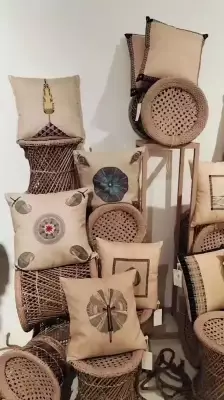
In the heart of Ghana, death is not an end but a spectacular celebration of life through breathtaking artistic expression. The country's famous fantasy coffin tradition has transformed funeral ceremonies into vibrant displays of craftsmanship and personal storytelling.
When Coffins Become Masterpieces
Unlike conventional Western burial practices, Ghanaian artisans create extraordinary coffins that mirror the deceased's life, profession, or deepest passions. These aren't mere containers for the departed but symbolic vessels that tell a powerful story about the person's journey on earth.
The Extraordinary Forms of Eternal Rest
The variety of fantasy coffin designs is limited only by imagination and craftsmanship:
- Professional Tributes: Farmers may be buried in giant onions or corn cobs, while fishermen rest in elaborately carved fish
- Personal Passions: Soccer enthusiasts find final peace in oversized football boots or cleats
- Modern Symbols: Beer bottles, mobile phones, and even luxury cars become eternal resting places
- Transportation Themes: Aeroplanes, buses, and cars symbolize the journey to the afterlife
The Artisans Behind the Magic
This unique tradition is sustained by skilled craftsmen who transform simple wood into profound artistic statements. Each coffin requires meticulous craftsmanship and deep understanding of the symbolic meaning behind every curve and color.
The process involves careful consultation with grieving families to ensure the final creation perfectly honors their loved one's memory and legacy.
Cultural Significance Beyond Aesthetics
Fantasy coffins represent more than just artistic expression—they embody the Ghanaian belief that death is a transition to another world. The coffin serves as a vehicle for this journey, equipped with symbols that reflect the individual's earthly accomplishments and spiritual aspirations.
This tradition has gained international recognition, with examples of these extraordinary coffins displayed in museums and art galleries worldwide, showcasing Ghana's rich cultural heritage to global audiences.
The practice continues to evolve, blending traditional beliefs with contemporary designs, ensuring that this unique form of memorialization remains vibrant and relevant for generations to come.





